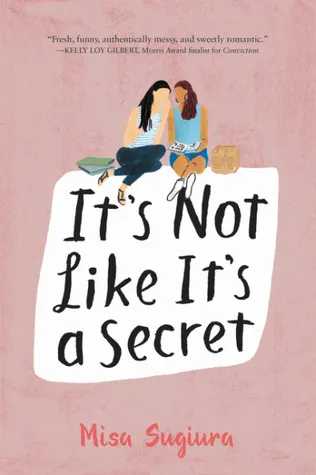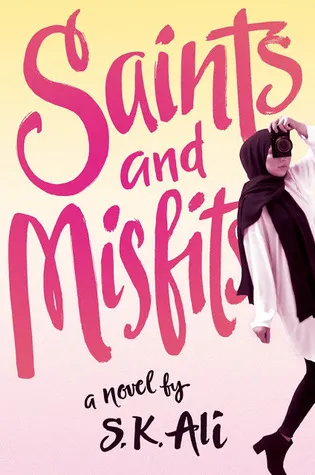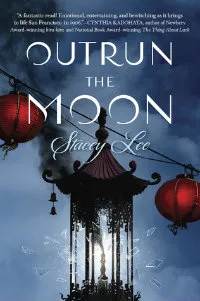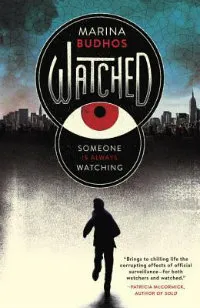
Here’s What Asian Pacific American YA Authors Want You to Know
This content contains affiliate links. When you buy through these links, we may earn an affiliate commission.
As we come to the close of Asian Pacific American Heritage Month, let’s hear from some of the Asian Pacific American authors who have won the Asian/Pacific American Award for Literature. Every year, the Asian/Pacific American Librarians Association selects ten titles to receive this award in order to “honor and recognize individual work about Asian/Pacific Americans and their heritage, based on literary and artistic merit.”
At the beginning of May, I set out to read APALA’s winning and honor titles from the YA Literature category from the last three years. YA Lit has always had a special place in my heart—I have so many memories from that wonderful and terrible time. I don’t think I’ll ever get enough stories about young adults finding their voices. And as an Asian American, I was especially excited to read these books by AsianPacific American Authors. Would they speak to me on an even more personal level?
It turns out they did. And right from the start, I was bursting with questions for the authors about the choices they made in forming their characters, framing their struggles, and describing their settings. I wanted to know more about what they hoped readers would take away from their stories. So I reached out—and not surprisingly, I got some thoughtful and provocative answers from these Asian Pacific American authors.
 Here are the winning books and what the authors have to say about them.
Here are the winning books and what the authors have to say about them.
Darius the Great Is Not Okay
Darius Kellner, a self-described “fractional Persian”—his mom is Persian, his dad is not—doesn’t quite fit in at school, at home, or with either set of relatives. As Darius struggles to find a sense of belonging, he and his family travel to Iran, where Darius discovers he still doesn’t fit in.
I recognize myself in this part of Darius’s story—this feeling of separation from a place that should feel familiar. And it turns out Adib Khorram knows there are many more of us who feel the same way. In creating Darius, Khorram says he hopes “Iranian-American readers—and other children of diaspora, really—get to see themselves reflected in a book. That they get to read about someone who loves their country of origin but feels like a tourist in it; who loves their family but feels like a stranger in it.”
He also told me he hoped “through writing about Darius’s trip, I could help connect the Iranian-American experience to the broader Asian/Pacific American experience. Sometimes it’s easy to forget that Iran is part of Asia, too, and that the connections run both broad and deep.”
I was instantly drawn into the enchanting, original prose of Emily X.R. Pan’s debut novel. Pan weaves magic and realism into a story about Leigh Chen Sanders, who gets a visit from a red bird in the aftermath of her mother’s suicide—and Leigh knows this bird is her mother. The bird urges Leigh to go to Taiwan, where she meets her maternal grandparents for the first time and spends the summer unearthing family secrets, learning about Taiwanese culture, and ultimately coming to some realizations about herself.
Although I wasn’t able to connect with Pan directly, she shed some light on Leigh’s story in an interview with TaiwaneseAmerican.org. Pan is “so incredibly thrilled to have more Asian American representation” in recent years, citing Crazy Rich Asians and To All The Boys I’ve Loved Before. And Pan has clearly earned a seat at that table with The Astonishing Color of After, which she said she hopes will help Asian-American readers—and other readers “who are struggling with being pulled between different identities and expectations”—feel seen.
It’s Not Like It’s a Secret
Sana Kiyohara, the Japanese American teen at the center of this story, moves from Wisconsin, where she’s one of only a few Asian American students, to northern California, where she’s suddenly one of many students of color.
Sana’s new Asian friends give her a sense of belonging that she’s never felt before before. But her newfound community poses a new set of challenges—not least because they seem totally uninterested in hanging out with any non-Asians. Sana’s new friendships become even more complicated—for many reasons—when she starts dating Jamie Ramirez, a girl from a different social group.
The way Misa Sugiura captures the multidirectional racism and stereotyping that many Asians can experience —and sometimes practice themselves—resonates deeply with me. Sugiura articulated it perfectly when she told me, “In my experience, it’s far more complicated than white vs Asian—especially in diverse areas like California.” One of those complexities, Sugiura explained, is that “a lot of East Asian teens feel more closely connected to their white counterparts than their Latinx, Black, and Native classmates. Even though they may be fighting against the often overtly racist views of their immigrant parents, as well as the racist/biased views about Asians that they encounter from non-Asians, they often fall into the trap of internalizing racism both against themselves and against other people of color.”
Saints and Misfits
Janna Yusef is juggling school, mosque activities, friends, her divorced parents, and a part-time job helping an elderly neighbor. Janna spends most of her time working to navigate life as a Muslim teenager in a diverse American community. But she’s also harboring a dark secret about her Muslim community’s golden boy.
I love the way S.K. Ali captures so many wildly different experiences within the same community—especially one that is so frequently misrepresented—all in one story. When I asked her about it, she told me, “As a Muslim with a deep appreciation for my community, it came naturally for me to write a wide variety of nuanced Muslim characters. It wasn’t something I set out to do deliberately, it just happened as I wrote. And, as someone so aware of how Muslims have been misrepresented and even mal-represented in narratives over the years, I’m so glad it did. I’m so glad that I was able to offer one story that captured some of the richness of my community.”
Outrun the Moon
Mercy Wong, the only Chinese American student at St. Clare’s School for Girls in San Francisco during the early 1900s, got her spot at the exclusive, all-white school through a mix of pluckiness and craftiness. While she’s there, the 1906 San Francisco earthquake destroys the school and leaves Mercy and the other girls without a place to live and without food to eat. Fortunately, Mercy isn’t afraid to use her craftiness again—this time to help the whole community.
Somewhere in the middle of reading Outrun the Moon, I realized with a start that this was the first historical fiction story I’ve read about a Chinese American teen. When I asked Stacey Lee why she chose to write this story from Mercy’s point of view, she told me she thinks it’s important to hear history told from the perspectives of people who aren’t the “majority.” And that “without their perspectives, a good bit of history is erased or forgotten. Most people didn’t know that the 1906 San Francisco earthquake had far-reaching effects on the face of Asian America. By destroying birth records, it created a loophole in an unjust piece of legislation (The Chinese Exclusion Act) and allowed Chinese people into the United States to finally claim they were citizens, and therefore able to bring in their families. Mercy helps us understand what that major event meant for her as a poor Chinese teenager, albeit ambitious one!”
Watched
Naeem, a Bangladeshi teen who feels like he’s always being watched by strangers, by police, even by his parents and little brother, has been spending a little too much time with his troublemaker friend, Ibrahim. When he gets caught up in a prank gone too far, the police offer him a deal: If he spies on the people in his community, then he won’t get in trouble. Suddenly Naeem is the one who’s doing the watching.
This story is immensely powerful, offering an interesting perspective on true events without being preachy. It could have been told from so many different points of view, but I love that Marina Budhos chose to tell it from a teenage boy’s perspective. When I asked her about the choice, she told me that she wanted “to really explore a young man who is so shaky in his sense of manhood, which is exactly what the detectives both bolster and prey upon. And then Naeem just grew in my mind—the well-meaning slacker kid, with such a gulf between himself and his father, wanting desperately to get back on track. I knew this would be a rich place from which to tell this story.”
She added that she also wanted to write a character “who came from the grittier side of the Asian-American experience, not at all a model minority—indeed that’s what feels both right in his face and yet so far away and hard to achieve.”
If you’re curious to read more Asian Pacific American authors who have won an APALA award, check out the complete lists for this year and for the past several years.
Read more Book Riot posts about Asian Pacific American stories:
/ya-books-for-asian-pacific-american-heritage-month-ya-books/
/asian-inspired-ya-fantasy-books/
/asian-pacific-american-books/
/asian-american-classic-novels-given-new-life-by-penguin-classics/
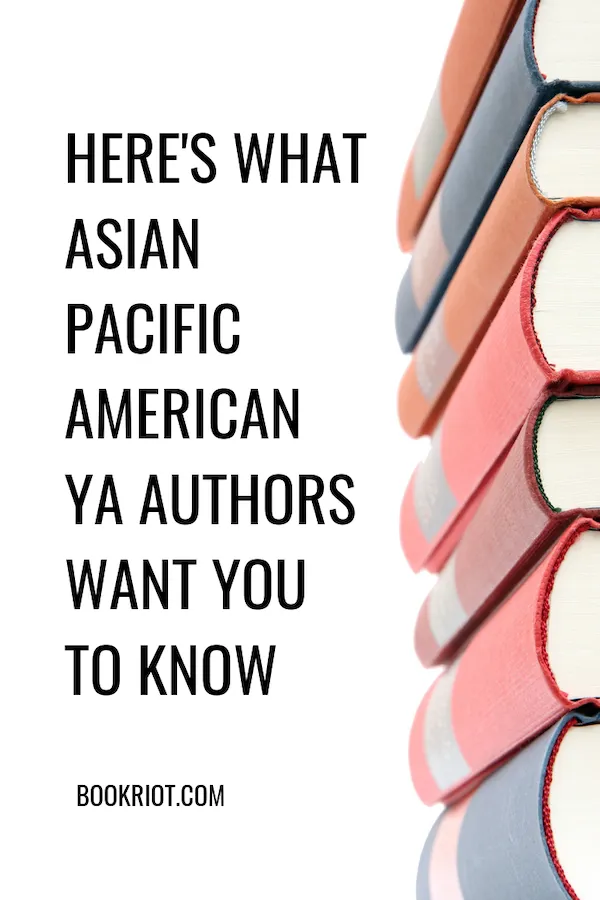 Here are the winning books and what the authors have to say about them.
Here are the winning books and what the authors have to say about them.



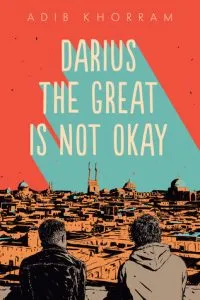
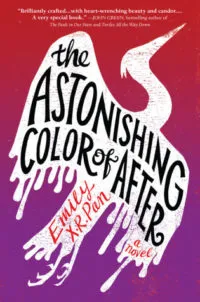 The Astonishing Color of After
The Astonishing Color of After